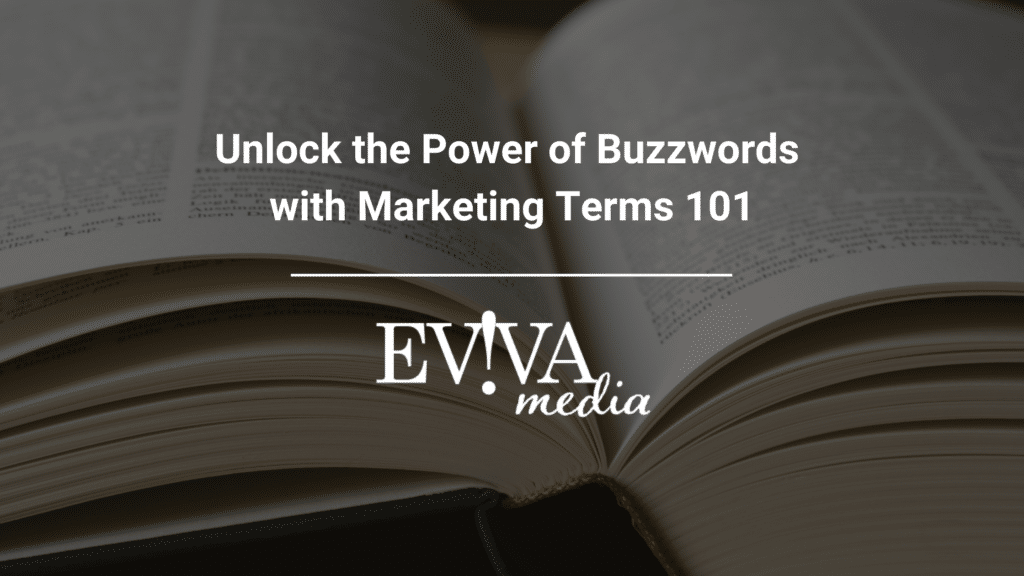Acronyms, jargon, and buzzwords, oh my! If you feel like you’re surrounded by marketing terms and language you don’t quite understand, you’re not alone. You’re the expert at what you do; it took blood, sweat, tears, and no small measure of time to reach that level of expertise. Unfortunately, there isn’t enough time in the day for you to also become an advertising expert.
Marketing and promotion are highly specialized areas of knowledge, especially in today’s always-on climate and internet-driven economy. Because it’s a specialized industry, a specialized kind of language has evolved with the experts. When you’re working with marketing and ad staff for your own business, the last thing you want is to feel out of the loop or left behind.
Here’s a quick and dirty guide to marketing terms that will get you up to speed without commanding all your time and effort.
- SEO – One of the most commonly bandied-about marketing terms, SEO, stands for “search engine optimization.” At the most basic level, this means using specific keywords and phrases in the right density to increase your visibility among search engines when people use them to look for professionals like you.
- CRM – Even if you’re unfamiliar with this marketing terms acronym, as a business owner or decision-maker, you are definitely familiar with the concept of client relationship management. You want everyone you serve to be satisfied with their experience and eager to recommend you to others and work with you again in the future.
- From a marketing and management standpoint, CRM means a program or system for keeping all the data you have on an existing customer recorded and accessible. There are a wide variety of software and cloud-based options; the important thing to remember is that CRM tools have a proven track record when it comes to supporting, nurturing, and growing relationships with your customers.
- CPC – Cost-per-click marketing is an online advertising model that allows websites to charge advertisers a fee based on how many times visitors click those hosted ads. It’s a common marketing tactic, especially for companies with a locked-in daily advertising budget. Most of the time, marketers are paired with websites willing to host CPC ads through third-party platforms, like Google AdSense.
- CPM – CPC marketing is built around advertisers paying for each time a visitor to another website clicks their ad. CPM, or cost per mile, is a twist on the same basic idea. Instead of paying each time someone clicks an ad, you pay a set price for every 1,000 impressions. These are ideal choices for when you’re just trying to signal boost your name to improve brand recognition or deliver a particular message on a larger scale. If the click-through rate itself isn’t as important as getting eyes on your marketing content, CMP is often a better choice.
- B2B vs. B2C – This one comes down to who you’re selling goods or services to; B2B means “business to business,” while B2C means “business to consumer.” If your audience is primarily other businesses, you’ll be marketing your brand in the B2B sphere. On the other hand, do you do most of your work directly with the end consumer? Then you’re in B2C territory. Knowing which designation fits is essential because there are very different ways of optimizing marketing for each.
Every marketing dollar you spend needs to have the biggest possible impact, which can be challenging to determine when you’re handling it all on your own. Eviva media can do more than help you understand marketing terms. Our experts can expand your brand’s reach, grow your bottom line and build a strong base of satisfied customers.






